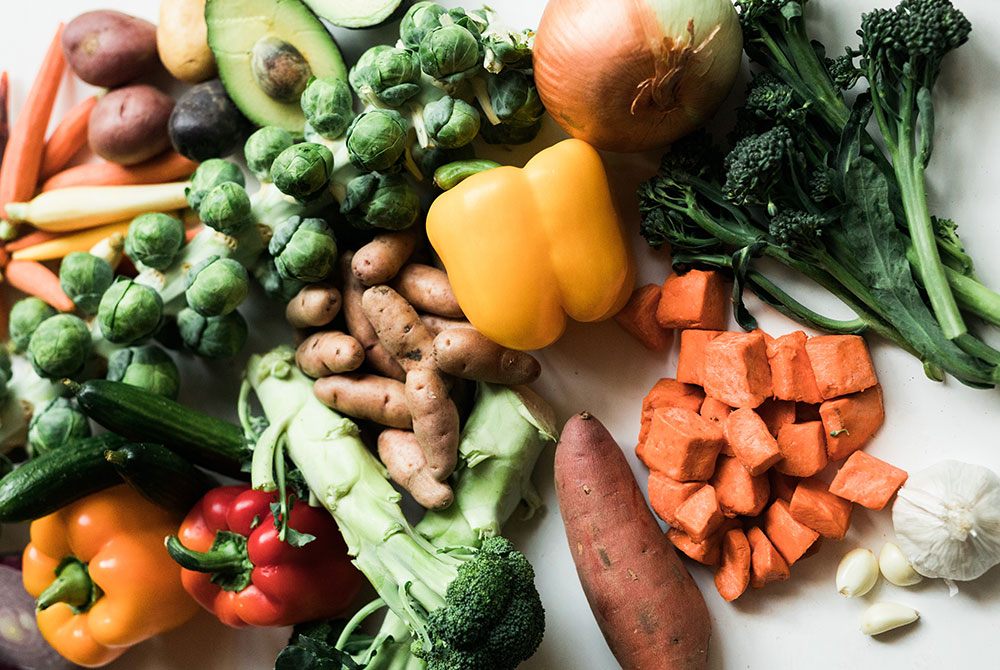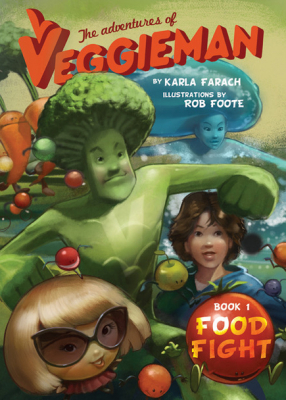
Fruits, vegetables, and other fresh, whole foods are not only delicious, but they also contribute to the health of the entire family.
Have you ever found that you feel better and more energized after eating fresh, healthy food? There’s a science behind the reason why.
When you consume healthy foods, your body is responding to all the vitamins, minerals, and nutrients you need to keep your energy up and your body thriving. Even more impressive, studies show nutritional counseling is beneficial in combating depression and improving mental wellness.
But how can we ensure our kids are reaping the benefits of fresh, whole foods in their daily lives?
Let’s look at how to incorporate them onto your family’s daily plate:
What exactly are fresh, whole foods?
With food labels claiming everything under the sun these days, you might be wondering what exactly qualifies a “whole food.” Fresh, whole foods are defined as any foods that are in their “natural” state and are not processed. These foods don’t have any added ingredients like sugars, oils, fats, flavorings, or other processed additives.
Some examples of fresh, whole foods include:
- fruits like apples, bananas, mangos, and blueberries
- vegetables like kale, spinach, mushrooms, and broccoli
- nuts and seeds that are eaten raw or without salt or other favors
- unprocessed meat, seafood, eggs, and poultry
- beans and legumes like lentils, kidney beans, black beans, and chickpeas
- whole grains like quinoa, brown rice, bulgur, and barley
Avoid processed grains like white rice as well as white bread, plain pasta, and other foods made from processed grains. Though products like white rice may seem harmless, they’ve been stripped of fiber-rich nutrients that are otherwise beneficial when consumed in their original state.
Why are fresh, whole foods so good for your health?
Fresh, whole foods are the best foods you can eat. Some of the top reasons to eat more of these types of foods include:
- Fresh fruits and vegetables are full of nutrients, vitamins and minerals, including Vitamin A, C, potassium, and folate (folic acid.) Potassium helps your body maintain healthy blood pressure. Folic acid is essential for healthy pregnancies, and Vitamins A and C are great for your skin and hair and for the absorption of iron.
- Fresh, whole foods like fruits and vegetables are also rich in antioxidants. These can help support your immune system and stave off disease.
- Fresh, whole foods contain plenty of healthy dietary fiber. Fiber helps keep your digestive system regular and prevent constipation. Fiber also helps reduce blood cholesterol levels and may even help lower your risk of developing heart disease.
- Fresh, whole foods are generally low in calories, helping you maintain a healthy weight.
- Eating healthy, fresh foods often may keep you healthier for longer and help prevent heart disease, diabetes, and even cancer.
In contrast, when you eat a lot of junk food, it doesn’t have any of the same nutritional value as whole, fresh foods. Eating a lot of processed foods can cause you to gain weight and may lead to diabetes, heart disease, or other long-term health consequences. That’s why it’s so important to stick to a diet of whole, unprocessed foods as often as possible.
Ideas for adding whole foods to your daily diet
Processed foods are everywhere—from the fast food restaurants you see on your drive home from soccer practice to the vending machines at work. But you can easily add more fresh, whole-foods into your family’s diet. Here are some ideas to try:
- Shop for fresh fruits and vegetables on Sundays. Cut them up and store them in containers in the fridge so your whole family can enjoy them throughout the week.
- Use your grill to cook simple meals like chicken and fish. Use lemon juice and fresh herbs instead of an overabundance of salt for flavor.
- Hard boil a dozen eggs on the weekend and enjoy them as a snack or on salads throughout the week.
- Serve cut-up vegetables that your kids can dip into hummus as a snack after school or before dinner. Even if they don’t eat the meal, they’re still getting plenty of healthy vegetables.
- Try to create healthy, simple meals that require only a few ingredients, such black bean soup, scrambled eggs, or grilled salmon topped with avocado.
Are fresh, whole foods more expensive?
Fresh, whole foods can cost more than processed food. That’s especially the case if you buy the organic variety. But even on a budget, you can incorporate more of these foods into your daily diet. Look for specials or sales on fresh foods at your local store.
Even if the fruits or vegetables you buy are close to expiring, you can still enjoy them immediately or use them in sauces or soups. If you’re trying to save money, only buy organic varieties of the “dirty dozen” fruits and vegetables like strawberries, spinach, apples, and grapes. You can also find frozen fruits and vegetables that have the same nutritious benefits as the fresh versions. Just make sure they don’t have any added sugar, salt, or other additives listed.










